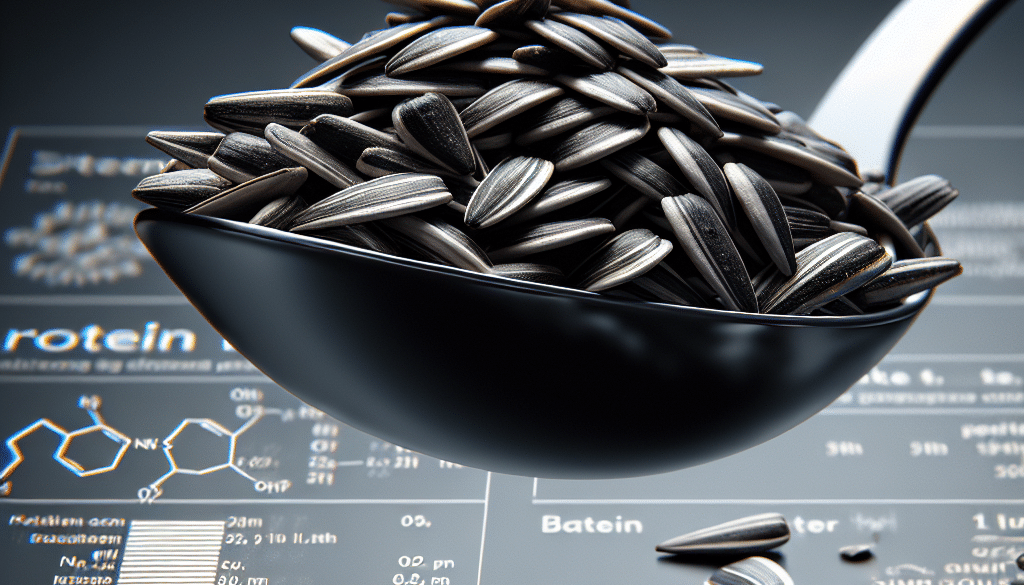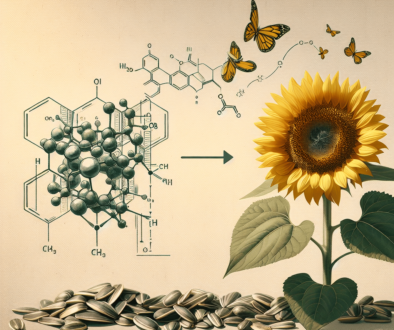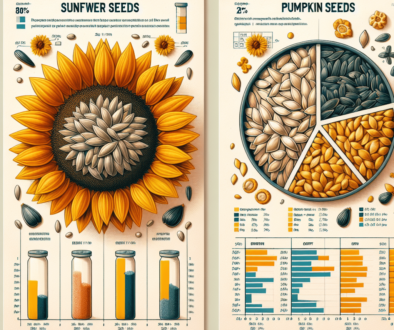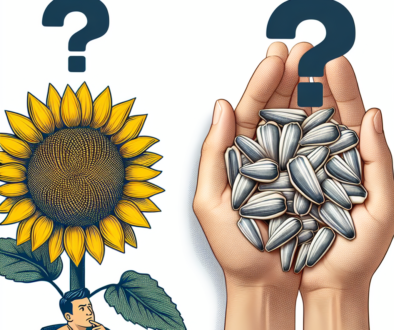Sunflower Seeds: Protein in 1 Tbsp Explored
-
Table of Contents
- Sunflower Seeds: Unveiling the Protein Content in 1 Tbsp
- Understanding Protein in Sunflower Seeds
- Protein Content in 1 Tbsp of Sunflower Seeds
- Comparison with Other Protein Sources
- Nutritional Profile of Sunflower Seeds
- Health Benefits of Sunflower Seed Protein
- Muscle Maintenance and Repair
- Weight Management
- Heart Health
- Immune System Support
- Incorporating Sunflower Seeds into Your Diet
- Comparative Analysis: Sunflower Seed Protein vs. Other Proteins
- Plant-Based vs. Animal-Based Proteins
- Protein Quality and Digestibility
- Sustainability and Environmental Impact
- Case Studies and Research
- Conclusion: The Power of Protein in Sunflower Seeds
- Discover ETprotein’s Sunflower Seed Protein Products
Sunflower Seeds: Unveiling the Protein Content in 1 Tbsp
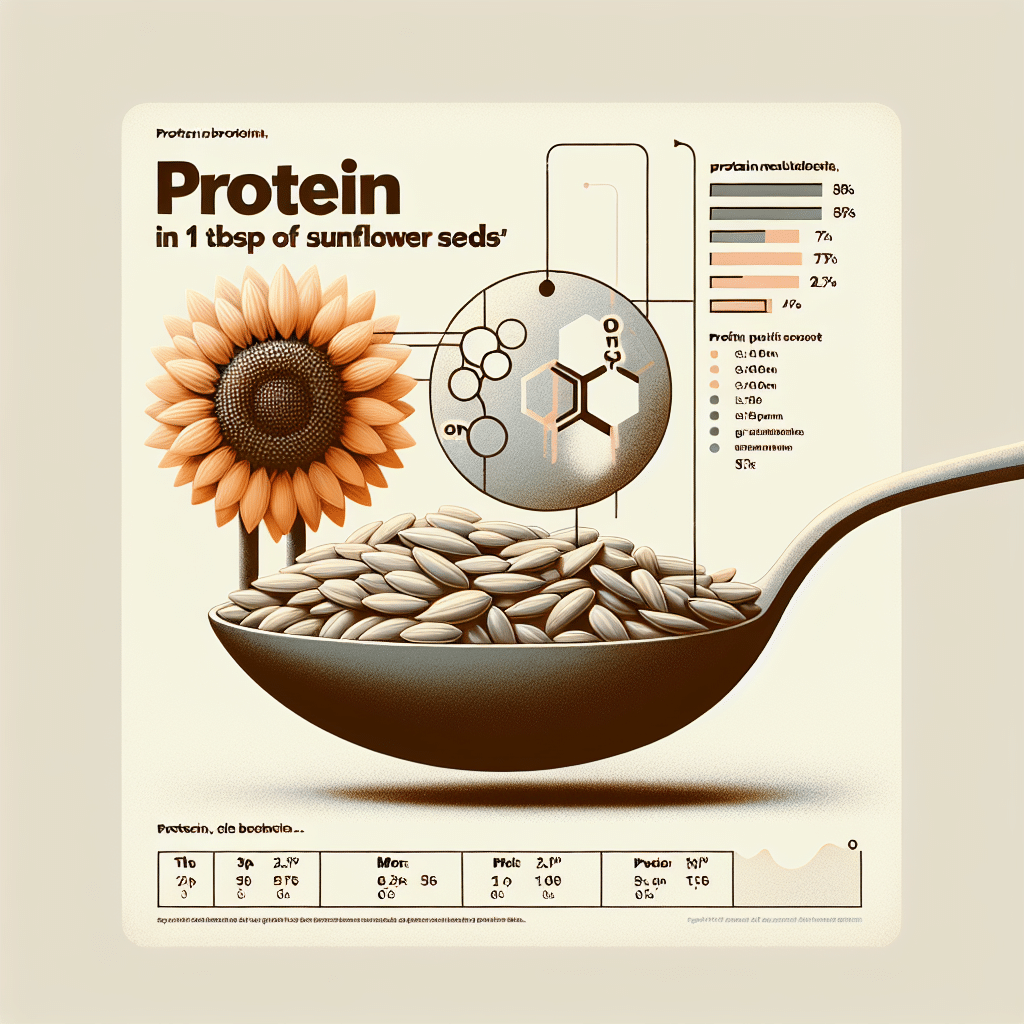
Sunflower seeds, a popular snack among health enthusiasts and a staple in many diets worldwide, are not only delicious but also packed with nutrients. One of the key components of these seeds is their protein content, which plays a crucial role in various bodily functions. This article delves into the protein content found in a tablespoon of sunflower seeds, exploring its significance, benefits, and how it compares to other protein sources.
Understanding Protein in Sunflower Seeds
Protein is an essential macronutrient necessary for building muscle mass, repairing tissues, and producing enzymes and hormones. Sunflower seeds are a source of high-quality plant-based protein that can contribute significantly to daily protein intake.
Protein Content in 1 Tbsp of Sunflower Seeds
A tablespoon of sunflower seeds typically contains about 3 grams of protein. This amount can vary slightly depending on the variety of the seed and how it’s processed. For instance, hulled seeds may have a slightly higher concentration of protein compared to those with shells.
Comparison with Other Protein Sources
When compared to other plant-based protein sources, sunflower seeds hold their own. For example, a tablespoon of flaxseeds contains about 1.3 grams of protein, while chia seeds offer 2 grams. Animal-based proteins, such as meat or dairy, generally provide more protein per tablespoon, but sunflower seeds are a great option for those following a vegetarian or vegan diet.
Nutritional Profile of Sunflower Seeds
Sunflower seeds are not only rich in protein but also contain a variety of other nutrients that contribute to their health benefits.
- Fats: They are a good source of healthy fats, including polyunsaturated and monounsaturated fats.
- Fiber: Sunflower seeds provide dietary fiber, which aids in digestion and promotes a feeling of fullness.
- Vitamins and Minerals: These seeds are rich in vitamin E, B vitamins, magnesium, selenium, and antioxidants.
Health Benefits of Sunflower Seed Protein
The protein in sunflower seeds is associated with numerous health benefits, making it a valuable addition to any diet.
Muscle Maintenance and Repair
Protein is essential for muscle maintenance and repair. The amino acids found in sunflower seed protein help in the growth and recovery of muscle tissue, which is particularly important for athletes and those with active lifestyles.
Weight Management
Due to their protein and fiber content, sunflower seeds can help in weight management by reducing hunger and increasing satiety, leading to a lower overall calorie intake.
Heart Health
The unsaturated fats in sunflower seeds, along with their protein content, contribute to heart health by reducing cholesterol levels and lowering the risk of heart disease.
Immune System Support
Protein is vital for a healthy immune system. The nutrients in sunflower seeds, including protein, help in the production of antibodies and strengthen the body’s defense against infections.
Incorporating Sunflower Seeds into Your Diet
There are many ways to include sunflower seeds in your diet to take advantage of their protein content and other nutritional benefits.
- Add them to salads for a crunchy texture.
- Blend them into smoothies for an extra protein boost.
- Use sunflower seed butter as a spread on toast or in sandwiches.
- Mix them into oatmeal or yogurt for a nutritious breakfast.
- Bake them into bread, muffins, or energy bars.
Comparative Analysis: Sunflower Seed Protein vs. Other Proteins
When evaluating sunflower seed protein against other protein sources, it’s important to consider factors such as bioavailability, amino acid profile, and dietary preferences.
Plant-Based vs. Animal-Based Proteins
Animal proteins typically contain all essential amino acids, making them complete proteins. However, plant-based proteins like sunflower seeds can still provide all the necessary amino acids when combined with other complementary plant proteins throughout the day.
Protein Quality and Digestibility
The quality and digestibility of protein from sunflower seeds are high, though not as high as animal-based proteins. Nonetheless, they are an excellent source of protein for those on plant-based diets.
Sustainability and Environmental Impact
Choosing plant-based proteins like sunflower seeds can have a lower environmental impact compared to animal-based proteins, making them a more sustainable choice for the planet.
Case Studies and Research
Several studies have highlighted the benefits of including sunflower seeds in the diet. Research has shown that sunflower seed protein can help lower blood pressure, reduce inflammation, and even have anticancer properties.
Conclusion: The Power of Protein in Sunflower Seeds
Sunflower seeds are a nutrient-dense food that offers a significant amount of protein in just a tablespoon. They are an excellent choice for those looking to increase their protein intake through plant-based sources. With their array of health benefits and versatility in the kitchen, sunflower seeds are a valuable addition to any diet.
Discover ETprotein’s Sunflower Seed Protein Products
If you’re interested in incorporating high-quality sunflower seed protein into your diet, ETprotein offers a range of products that cater to your needs. Their sunflower seed protein is characterized by a neutral taste, non-GMO, and allergen-free attributes, making it an ideal choice for various applications.
About ETprotein:
ETprotein, a reputable protein Chinese factory manufacturer and supplier, is renowned for producing, stocking, exporting, and delivering the highest quality organic bulk vegan protein and plant proteins. They include Organic rice protein, clear rice protein, pea protein, clear pea protein, pumpkin seed protein, sunflower seed protein, mung bean protein, etc. Their offerings, characterized by a neutral taste, non-GMO, allergen-free attributes, cater to a diverse range of industries. They serve nutraceutical, pharmaceutical, cosmeceutical, veterinary, as well as food and beverage finished product distributors, traders, and manufacturers across Europe, USA, Canada, Australia, Thailand, Japan, Korea, Brazil, and Chile, among others.
ETprotein specialization includes exporting and delivering tailor-made protein powder and finished nutritional supplements. Their extensive product range covers sectors like Food and Beverage, Sports Nutrition, Weight Management, Dietary Supplements, Health and Wellness Products, and Infant Formula, ensuring comprehensive solutions to meet all your protein needs.
As a trusted company by leading global food and beverage brands and Fortune 500 companies, ETprotein reinforces China’s reputation in the global arena. For more information or to sample their products, please contact them and email sales(at)ETprotein.com today.

